
Google DeepMind: Transforming AI with World-Building Tech
Written by Marc Alringer
Key Takeaways
-
Gemini 2.5 introduces the ability to process and understand multiple types of data simultaneously, such as text, images, and audio, making it more versatile and accurate when tackling complex tasks.
-
Google DeepMind's commitment to ethical AI is highlighted through collaborations aimed at responsible development and the establishment of forums to address AI’s societal implications.
-
The integration of AI in healthcare, exemplified by the Streams app and AlphaFold Server, demonstrates Google DeepMind's focus on enhancing patient care and advancing medical research.
-
Google DeepMind continues to lead in AI breakthroughs and updates, showcasing significant advancements that impact various fields, including coding and music.
Time to read: 8 min
Table of Contents +
- Google DeepMind's History and Future of AI Innovation
- Introducing Gemini 2.5
- Google I/O 2025: Gemini 2.5 at the core of Google's AI evolution
- Gemini 2.5: Powering the Next Generation of AI Features
- Expanding AI's Reach Across Platforms
- Subscription Models for Enhanced Access
- Google DeepMind Historical Achievements
- Latest AI Breakthroughs by Google DeepMind
- Google DeepMind AI Breakthrough Case Studies
- Foundational Research: Core Innovations Behind Google DeepMind's AI
- Google DeepMind's Responsible and Ethical AI
- AI in the Real World: Healthcare for the Greater Good
- Summary
- Frequently Asked Questions
Google DeepMind's History and Future of AI Innovation
Google DeepMind is an AI research company founded in London in 2010 and acquired by Alphabet (Google’s parent company) in 2014 for $500 million. The team consists of researchers and engineers pushing the boundaries of artificial intelligence.
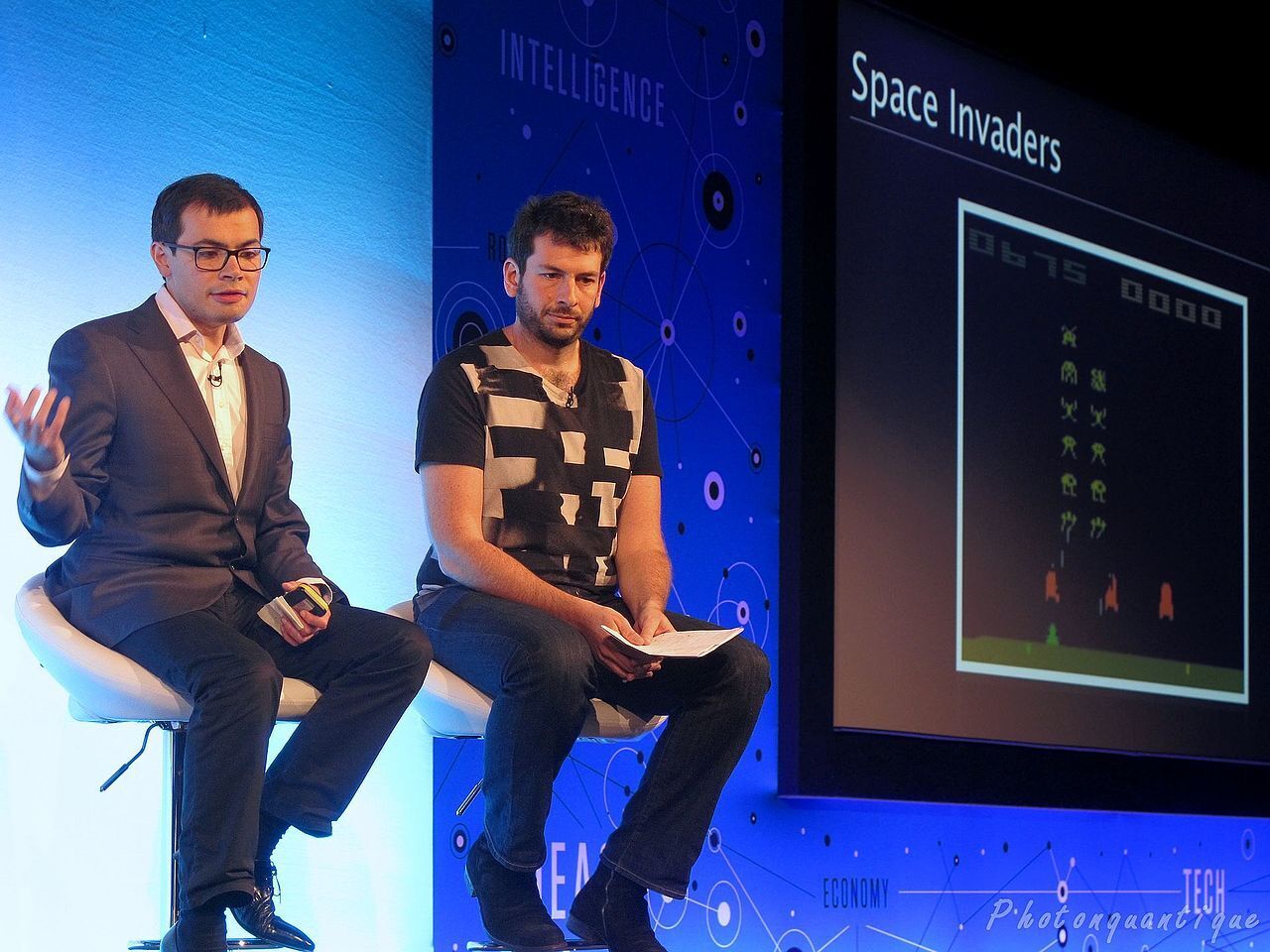
Today, DeepMind operates under Alphabet, driving progress in healthcare, software development, and beyond. It remains headquartered in London with research hubs in the U.S., Canada, France, Germany, and Switzerland.
In March of 2025, Google DeepMind introduced its latest large language model, Gemini 2.5 Pro, which integrates multiple data types, making it a powerful tool for complex tasks. Let's explore Google DeepMind's innovations and their future impact, including updates from the lab on ongoing research and developments.
Marc Alringer
Chief Revenue Officer/Founder, Seamgen
Marc Alringer, the visionary Chief Revenue Officer and Founder of Seamgen, has been at the forefront of digital transformations, specializing in web and mobile app design and development. A proud alumnus of the University of Southern California (USC) with a background in Biomedical and Electrical Engineering, Marc has been instrumental in establishing Seamgen as San Diego's top custom application development company. With a rich history of partnering with Fortune 500 companies, startups, and fast-growth midsize firms, Marc's leadership has seen Seamgen receive accolades such as the Inc 5000 and San Diego Business Journal’s “Fastest Growing Private Companies”. His expertise spans a wide range of technologies, from cloud architecture with partners like Microsoft and Amazon AWS, to mobile app development across platforms like iOS and Android. Marc's dedication to excellence is evident in Seamgen's impressive clientele, which includes giants like Kia, Viasat, Coca Cola, and Oracle.
As technology in society progresses, the AI being developed is getting stronger and more fluid. Although there are myriad AI programs in existence, we will be analyzing the progression and recent achievements from Google DeepMind. Sit back as we take you on a tour of DeepMind, from its beginnings, to experience learning, to recent healthcare applications.
.webp)
Gemini 2.5: Core Capabilities That Redefine AI
Released in March 2025, Gemini 2.5 is the most advanced Gemini model to date. Built on Gemini 2.0, it features significant improvements in multimodal understanding, memory, reasoning, and responsiveness. These foundational capabilities were available when the model launched in March 2025 and form the basis for many of the product announcements that followed.
.webp)
Key Improvements in Gemini 2.5
-
Multimodal Understanding
Gemini 2.5 processes text, images, and audio together, allowing it to respond more intelligently to complex, real-world prompts. This is especially useful in healthcare, where doctors could input a medical image (like an X-ray), patient notes, and voice instructions. Gemini 2.5 could analyze all inputs to assist in diagnosis or treatment planning. -
Extended Memory Capabilities
Gemini 2.5 can retain focus over long conversations or documents (up to 1 million tokens), supporting tasks such as coding projects, research analysis, or multi-step planning. In legal or research settings, Gemini 2.5 can review and summarize long case files or research papers while maintaining context, saving time and reducing human error. -
Stronger Reasoning and Planning
The model is better at logical thinking and breaking down problems into steps, making it more reliable for structured tasks and decision-making. This supports fields like finance or logistics, where it can evaluate risks, plan multi-stage operations, or simulate decision outcomes for supply chain management. -
Improved Coding Performance
Gemini 2.5 generates cleaner, more accurate code and handles multi-file programming with ease, putting it on par with top AI developer tools. Software engineers can use it to build and maintain complex applications, from enterprise platforms to mobile apps, reducing development time and debugging errors. -
Faster, More Efficient Responses
Thanks to architectural optimizations, the model delivers answers quicker, which is a major plus for real-time uses like chatbots or digital assistants. In customer service, Gemini 2.5 powers faster, more helpful responses, enabling businesses to resolve inquiries in seconds instead of minutes. -
More Resilient in Unpredictable Scenarios
It adapts well to unclear or changing inputs, offering contextually accurate responses even in creative or evolving tasks. In creative fields like game design or content creation, Gemini 2.5 can respond to vague prompts and still generate useful ideas, narratives, or design iterations.
Gemini 2.5’s ability to stay engaged over long interactions and adapt to a variety of tasks makes it a powerful tool for everything from interactive apps to deep technical simulations. It’s a clear example of how AI is becoming more capable, flexible, and useful in real-world applications.
Who are We? Mobile App Development Masters
- At Seamgen, we develop groundbreaking mobile apps for a variety of healthcare, entertainment, and Fortune 500 clients, including federal and state governments.
- Over a decade of experience in agile software development methodologies leads to robust, innovative apps with a multitude of use cases.
- Several teams collaborate to deliver bug-free mobile apps.
- USA Design Led Development Agency based in San Diego, CA.
- We invite you to call us for a free project consulation.
From Lab to Launch: Google I/O 2025 Product Announcements
At the annual Google I/O developer conference on May 20, 2025, Google showcased how Gemini 2.5's capabilities are being integrated into real-world products. These announcements demonstrate the practical deployment of the model's core strengths.
The conference didn't unveil a new version of the model but rather highlighted how Gemini 2.5 was being applied across Google's ecosystem of tools and platforms.
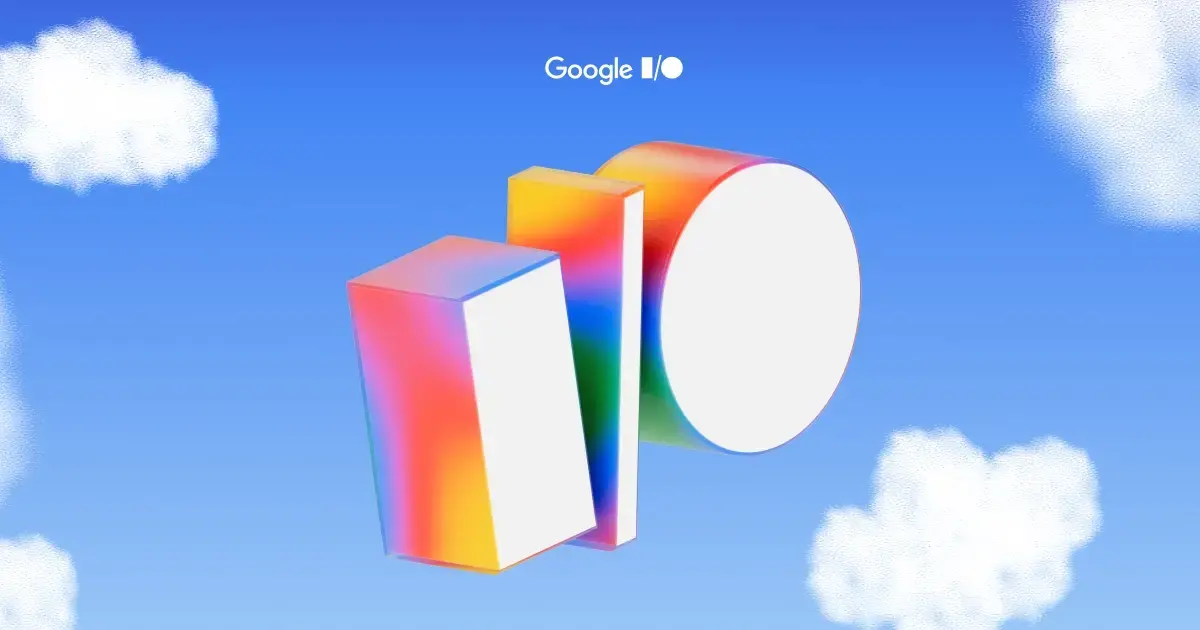
Highlights from Google I/O 2025
AI Mode in Search
A new, conversational way to interact with Google Search. Powered by Gemini 2.5, it processes complex, multi-layered queries in real-time.
Gemini Live
An AI assistant that combines voice, camera, and web data for interactive, real-time support. Uses Gemini 2.5’s multimodal processing to deliver contextually rich experiences.
Project Astra
A real-time, intelligent agent designed for seamless task execution across applications, demonstrating Gemini 2.5’s agility and reasoning.
Veo 3 & Imagen 4
Advanced creative tools for video and image generation. They leverage Gemini 2.5’s capabilities to produce high-quality visual content from text prompts.

Android XR Smart Glasses
In collaboration with Gentle Monster and Warby Parker, these smart glasses use Gemini 2.5 to provide real-time translation and contextual overlays.
Each of these use cases reflects how the model's underlying abilities were translated into tangible, consumer-facing features.
Subscription Tiers
These tiers allow different types of users to access Gemini 2.5's full capabilities based on their needs:
-
AI Pro: Priced at $20/month, this tier offers access to enhanced AI functionalities suitable for general users.
-
AI Ultra: At $250/month, this premium tier provides comprehensive access to Google's most advanced AI tools, catering to professional and enterprise needs .
Clarifying the Timeline
March 2025: Gemini 2.5 Pro launched, introducing multimodal processing, extended memory, and stronger reasoning.
May 2025: Google I/O showcased real-world applications of Gemini 2.5, integrating it into products like Search, Gemini Live, and XR smart glasses.
Gemini 2.5 represents a leap not just in model capability, but in how AI is being applied in everyday tools. With each advancement, Google DeepMind continues to redefine the role of AI in work, creativity, and life.
Google DeepMind Historical Achievements
Google DeepMind is recognized for its pioneering spirit and technical ingenuity. They hit a major milestone with the creation of AlphaGo, founded and developed starting in 2014. AlphaGo was the first AI system to defeat a human professional Go player. This breakthrough marked a pivotal moment in AI development and highlighted the power of deep reinforcement learning in solving highly complex problems.

Go is a complex strategy game played on a 19x19 grid where two players take turns placing black and white stones. The goal is to control more territory than the opponent by surrounding empty areas and capturing the opponent's stones.

The historic 2016 match in which AlphaGo beat Lee Sedol, winning four out of five games, was a defining event in AI history. It revealed not only the strategic depth of AlphaGo’s gameplay but also its ability to push beyond conventional human thinking—most memorably with Move 37 in game two.
Most human Go players, especially at the professional level, follow established patterns and heuristics built from centuries of play. At move 37, AlphaGo played a shoulder hit on the fifth line (a move far from the center of action) in a location that no professional would typically consider so early in the game. Most human experts initially considered the move a mistake. The Korean commentator at the time and 9-dan professional Go player, Kim Seong-ryong, said "It’s not a move a human would ever play."
This move was unexpected and highly creative, surprising both Lee Sedol and Go experts worldwide. Unlike typical human plays, Move 37 demonstrated AlphaGo's ability to think beyond traditional strategies, showcasing a new level of strategic depth and innovation. That moment sparked new paths for AI research and inspired a global audience captivated by the possibilities of artificial intelligence.
Google DeepMind's continued drive to push the boundaries of AI has firmly established it as a leader in innovation and a standout force in the tech world.
Latest AI Breakthroughs by Google DeepMind
Google DeepMind is pushing the boundaries of AI with innovations like Gemini 2.5 Pro, which is optimized for enhanced coding performance and demonstrated its strength through benchmark tests. With advanced reasoning abilities, Gemini 2.5 Pro empowers developers to create groundbreaking applications and run complex simulations, advancing the field of AI.
.webp)
Google DeepMind’s generative AI models, such as Lyria for music composition and Imagen for high-resolution image generation, are transforming creative industries. Offering tools like melody generators, rhythm creators, and harmonization assistants, Google DeepMind is helping artists, musicians, and creators unlock new forms of creativity while solving practical challenges. These innovations are not only enhancing creative work but are also opening new possibilities across various fields, from the arts to science and represents the next wave of assistive technology in robotics, showcasing the latest AI breakthroughs.
Notable Google DeepMind AI Models and Their Purposes:
Lyria
Imagen
AlphaFold
AlphaStar
WaveNet
Google DeepMind Lab
MuZero
These advancements are making AI more accessible and unlocking new opportunities for creative expression. From digital art to scientific research, Google DeepMind's work is paving the way for innovations that could impact a wide range of fields, including art, literature, and technology.
Google DeepMind AI Breakthrough Case Studies
As Google DeepMind continues to break new ground, it’s clear that the future of AI is full of exciting possibilities. Designed for the next generation of applications and industries, Google DeepMind's AI models are not only advancing the capabilities of AI but also laying the foundation for future technologies that will transform industries and enhance everyday life.
Google DeepMind's mission is for AI to benefit society by harnessing its positive impacts while mitigating potential negative consequences. Here are some case studies demonstrating how Google DeepMind's AI Models are being applied in the real world.
AI-Powered Robotics with Gemini Models
A new generation of robots, powered by Gemini 2.0-based models, is improving performance across various tasks. These robots are equipped with advanced sensors and actuators that allow them to sense their environment with high precision. They use high-resolution cameras, LiDAR systems for measuring distances accurately, and tactile sensors to detect texture and pressure. With powerful processors that analyze data in real-time, these robots can make quick, precise decisions.
These robots are capable of tasks like assembling complex components on a production line or assisting with delicate surgeries. For example, Boston Dynamics' Spot robot, currently in its fourth iteration, excels in inspection and data collection across industrial sites, showcasing agility and advanced sensing capabilities.

Another example is the Da Vinci Surgical System by Intuitive Surgical, widely used in hospitals for minimally invasive surgeries, offering surgeons enhanced precision and control. These robots combine physical actions with sensory feedback, making them versatile and effective in different settings.
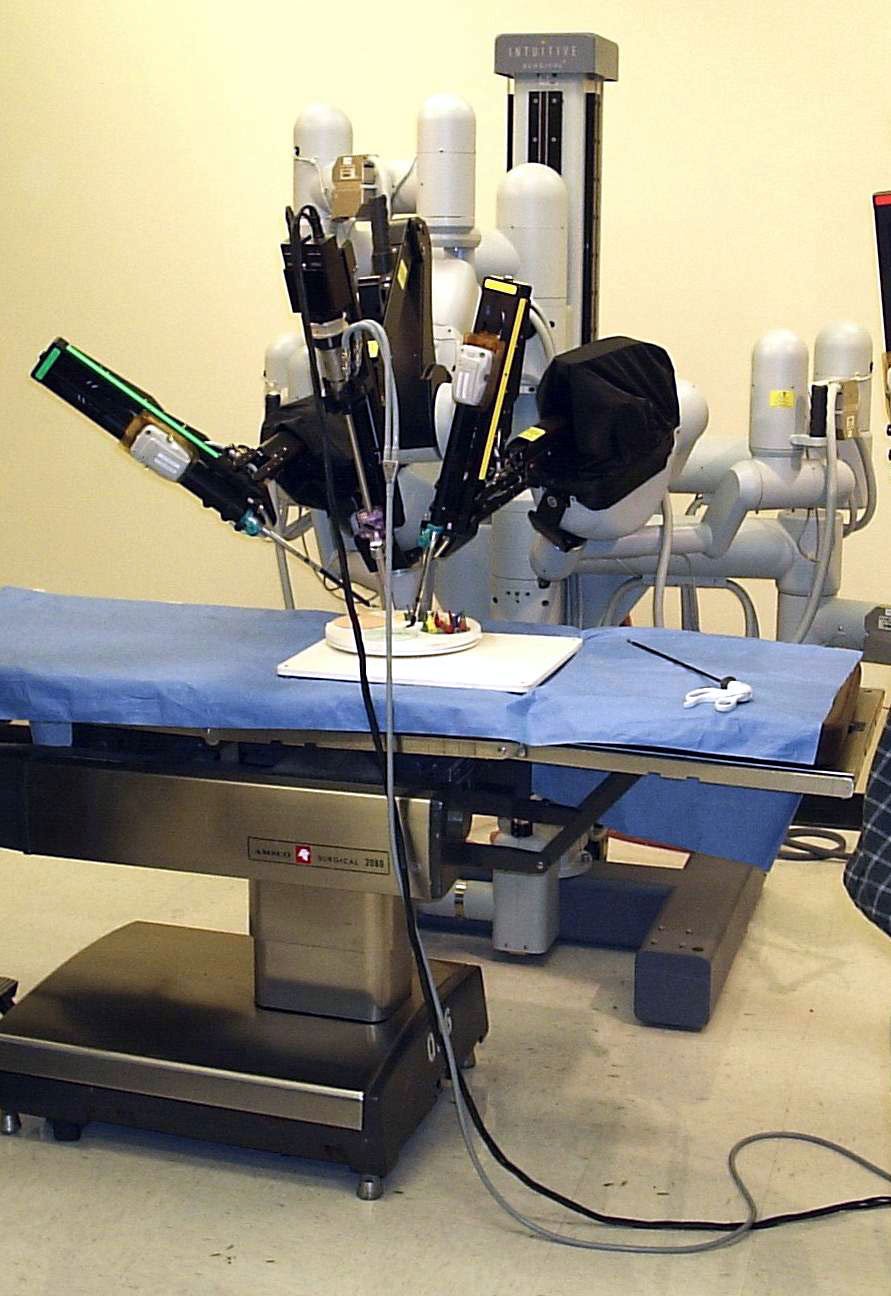
The Gemini 2.0 models behind these robots offer exceptional cognitive and interactive abilities. They can handle a wide range of tasks, from manufacturing to surgery, logistics, quality control, and even research. This versatility demonstrates the broad applications of these robots.
What makes Gemini Robotics stand out is its ability to adapt quickly to various environments. These robots don’t need extensive reprogramming to shift between tasks, showcasing both their intelligence and flexibility. As AI technology advances, Gemini Robotics is leading the way, setting the stage for more innovative automated solutions.
Interactive AI Assistants: The Astra Prototype
Google DeepMind's Project Astra is a forward-looking prototype that demonstrates the growing potential of AI assistants. Designed to recognize objects in real time and respond to user queries with contextual awareness, Astra offers a more natural and efficient way to interact with technology.
By combining advanced perception with natural language processing, the Astra assistant can identify items, explain their function, provide navigation assistance, and answer questions about a user’s surroundings.
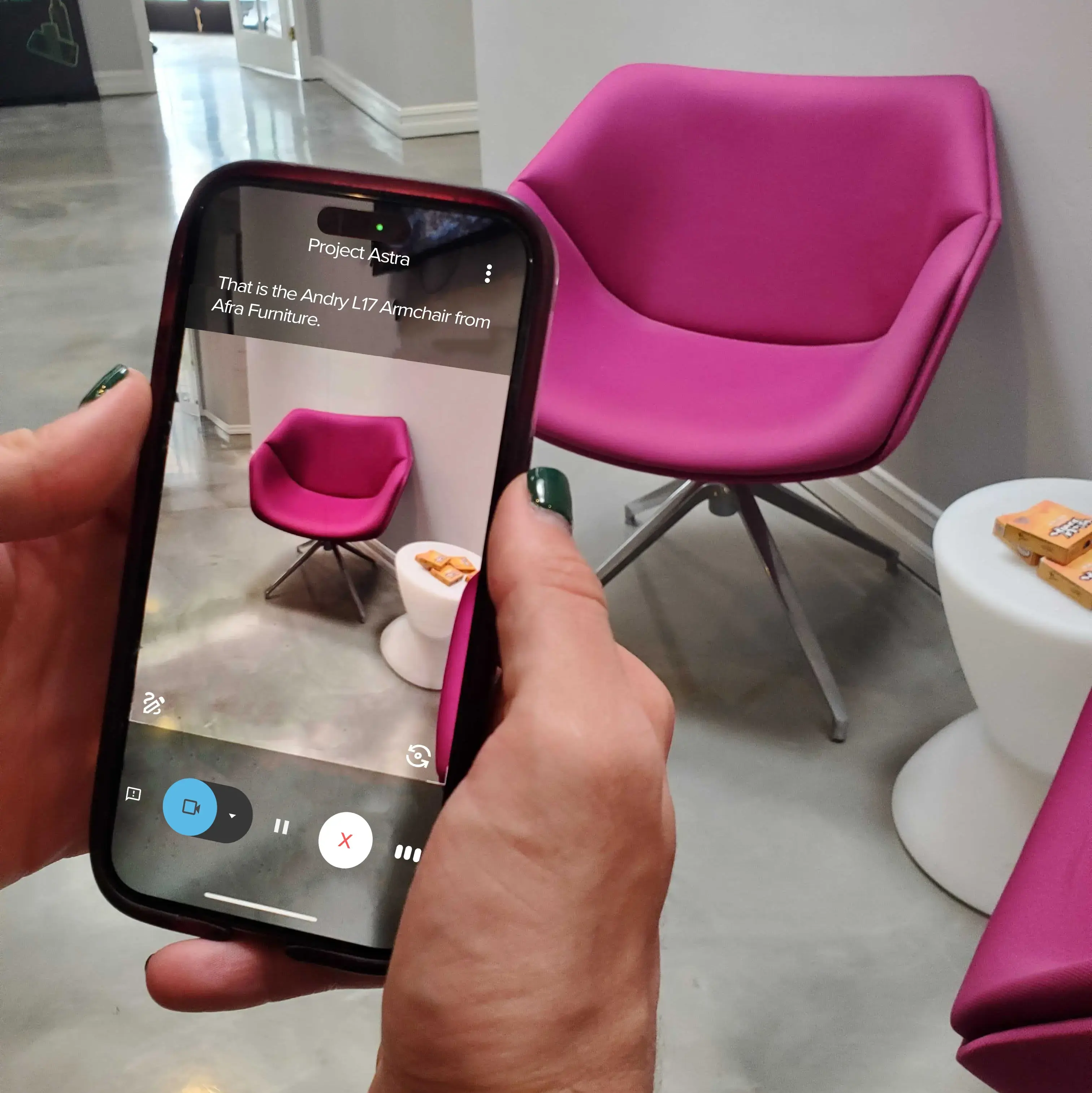
This level of interactivity highlights how AI assistants could become integral to daily life, supporting everything from simple tasks like locating household items to complex problem-solving in dynamic environments.
By fostering collaboration and creative exploration, Google DeepMind works on new ideas and develops technologies that could transform various industries. Their dedication to progress through research reinforces Google DeepMind's position as a leader in the AI field.
Foundational Research: Core Innovations Behind Google DeepMind's AI
Google DeepMind's AI research focuses on deep reinforcement learning, a method where AI systems learn by trial and error, guided by rewards—similar to how humans learn through experience. This approach allows AI to tackle complex problems with increasing efficiency and adaptability.
.webp)
One of their key breakthroughs is the Deep Q-Network (DQN), an algorithm that combines deep learning with reinforcement learning. It enables AI to learn how to make decisions by observing an environment and predicting which actions will lead to the best outcomes. For example, this system helped AI reach human-level performance in classic Atari games, showing that machines could develop strategic behavior from scratch.
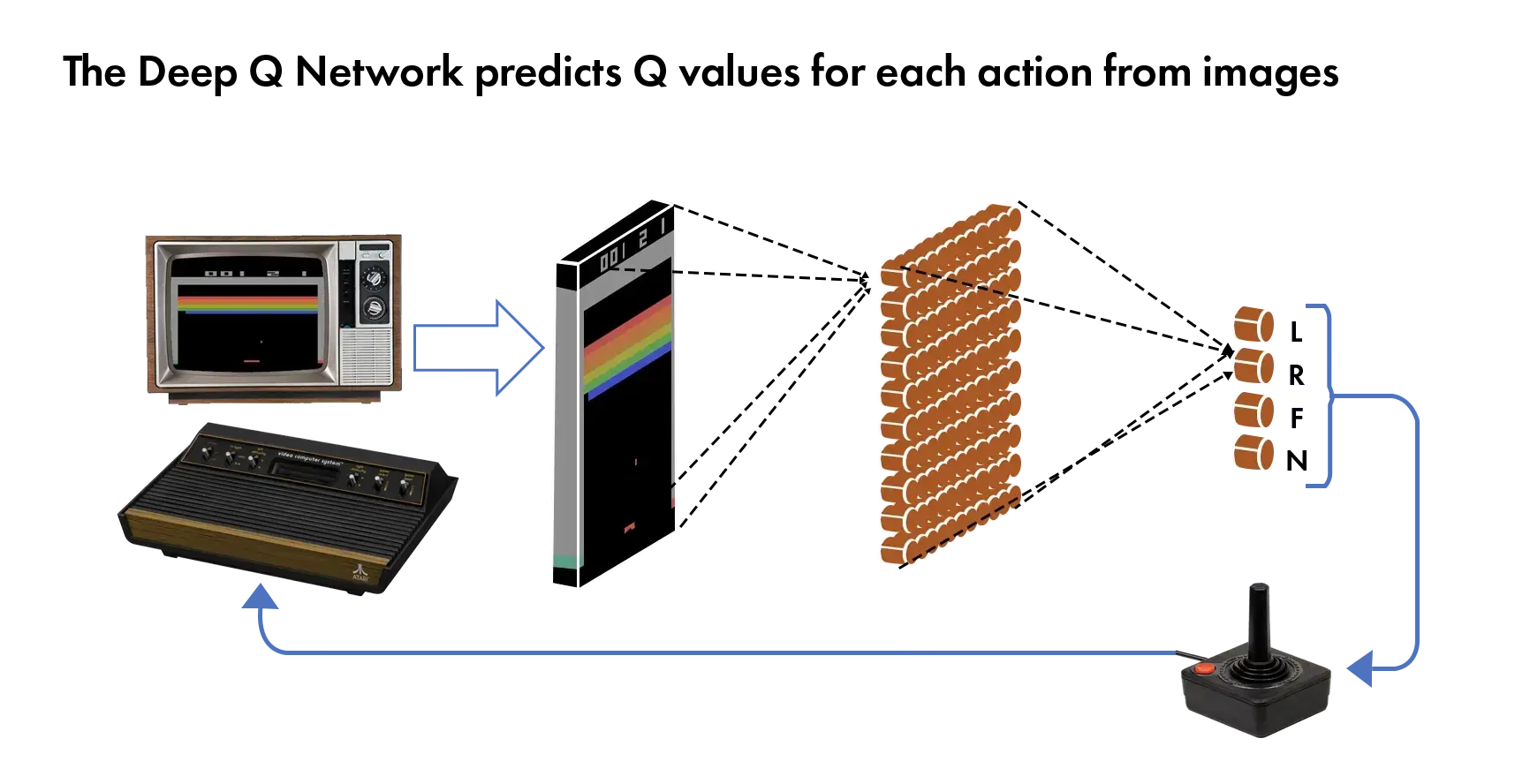
Another major innovation is the asynchronous actor-critic algorithm (A3C). Unlike older methods such as Deep Q-Network (DQN) and single-agent reinforcement learning that trained one AI agent at a time, A3C trains multiple agents in parallel. This makes the learning process faster and more efficient, using fewer computational resources. It’s a key step toward making AI research more scalable and environmentally sustainable.
Google DeepMind's Responsible and Ethical AI
With the increasing use of AI in everyday applications, it’s more important than ever to approach their development with responsibility and ethical foresight. Google DeepMind emphasizes the need to consider the broader impact of AI by addressing potential risks early in the process. This proactive mindset aims to reduce negative outcomes while maximizing benefits for society. As AI becomes more integrated into our everyday lives, Google DeepMind believes in building a strong ethical foundation to guide its evolution.
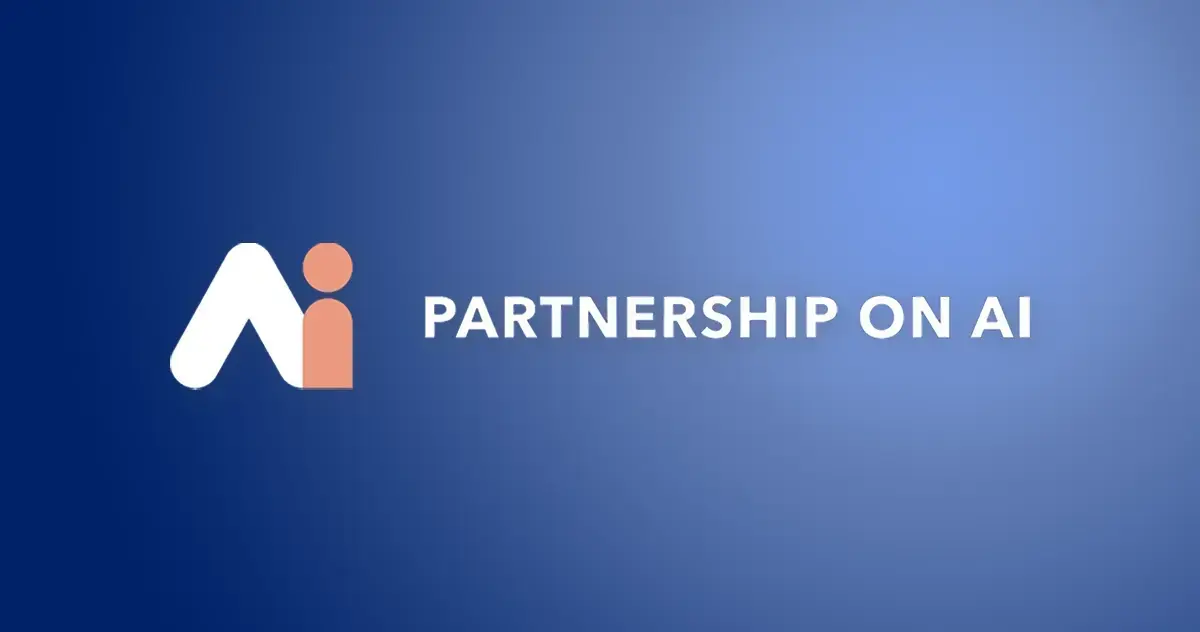
To support thoughtful progress, Google DeepMind partners with organizations like the Partnership on AI to tackle shared challenges and promote safe, inclusive use of the technology. The Partnership on AI is a global coalition of leading companies, academics, and nonprofits dedicated to advancing the understanding and responsible development of artificial intelligence. It serves as a collaborative platform where diverse stakeholders work together to address ethical, social, and policy issues surrounding AI, ensuring its benefits are widely shared and its risks minimized. One major step in this direction is the launch of the Frontier Model Forum, a collaborative initiative that brings together experts from different fields to explore the ethical questions surrounding AI and ensure it’s built and used responsibly. The Frontier Model Forum operates as a distinct initiative but collaborates closely with organizations like the Partnership on AI to promote safe and ethical AI development.

Google DeepMind also invests in AI education by working with schools and universities to support teachers, develop learning materials, and integrate AI into classrooms. These efforts aim to help future generations better understand how these systems work and how they’ll shape the world.
Google DeepMind’s Educational Partnerships
|
Institution |
Program Details |
|---|---|
|
University College London (UCL) |
PhD scholarships and collaborative research in AI and machine learning. (1) |
|
University of Oxford |
Research funding and scholarships focused on AI ethics and reinforcement learning.(2) |
|
University of Cambridge |
Fellowships supporting AI safety and human-aligned machine learning. (3) |
|
African Institute for Mathematical Sciences (AIMS) |
Scholarships for African students in AI and machine learning. (4) |
|
Queen Mary University of London |
Master’s-level scholarships for underrepresented students in AI. (5) |
|
University of Birmingham |
Scholarships for MSc AI students from underrepresented backgrounds. (6) |
|
University of Edinburgh |
Scholarships supporting diversity in AI master's programs. (7) |
|
University of York |
Support for students from underrepresented communities pursuing AI-related master's degrees. (8) |
The Google DeepMind Responsibility and Safety Council is a multidisciplinary group of AI researchers, ethicists, legal experts, and external advisors from academia and industry. The council ensures that all projects align with principles like fairness, transparency, accountability, and privacy. It guides the ethical development of AI through rigorous model reviews, early-stage integration of ethical design, and assessments of societal impact. The council also engages with external organizations and global forums to help shape industry-wide standards.
By placing ethics at the core of its work, the council seeks to ensure Google DeepMind innovations serve the broader goals of societal benefit and global well-being.
AI in the Real World: Healthcare for the Greater Good
Google DeepMind is committed to using technology to serve the greater good, especially in healthcare. The company is advancing research that integrates AI directly into clinical workflows, making medical processes more efficient and improving outcomes for patients.
Notable progress includes AI tools like Google DeepMind's retinal disease detection system, which can identify over 50 eye conditions with high accuracy.
Innovations like this highlight how AI can make healthcare more responsive and effective.
Google DeepMind's AlphaFold Server is another major step forward, offering open access to their groundbreaking work in biology. It is already accelerating scientific discovery and enhancing medical research by providing highly accurate predictions of protein structures. This breakthrough allows researchers to understand biological processes more deeply, identify potential drug targets faster, and design new treatments with greater precision.
By making over 200 million protein structures accessible, AlphaFold significantly reduces the time and cost traditionally required for experimental methods, thereby speeding up innovation while lowering costs across biotechnology and medicine. As Google DeepMind continues to drive innovation in healthcare, it also plays a leading role in shaping the future of AI across industries, fully embracing the possibilities of the agentic era.
Summary
Looking to the future, Google DeepMind is consistently pushing for high-impact research to open the door to new discoveries and advancements across the field. The company is not only shaping the path of artificial intelligence but also inspiring the next generation of scientists and thinkers. This is only the beginning of an era where AI has the power to transform the world in meaningful and lasting ways.
Frequently Asked Questions
The Partnership on AI is a collaborative platform that brings together a diverse range of organizations, including leading technology companies, academic institutions, and nonprofit groups. The Partnership on AI's goal is to enhance the understanding and responsible implementation of artificial intelligence by developing a set of AI best practices. It fosters open dialogue by creating forums, workshops, and joint initiatives where stakeholders can share insights, discuss ethical challenges, through shared resources and events.
An example of one of these programs for AI best practices is the "AI, Labor, and the Economy" program that gathers Partner organizations, economists, and worker representative organizations to form shared answers and recommendations for actionable steps that need to be taken to ensure AI supports an inclusive economic future.
Some of the Organizations Partnering with "Partnership on AI"
-
Adobe
-
Amazon
-
Apple
-
Google
-
IBM
-
Capital One
-
Sony
-
Microsoft
-
Meta
By promoting adherence to ethical standards within the industry, it seeks to improve the conversation around artificial intelligence and realize its utmost capabilities.
Google acquired DeepMind for $500 million.
Google DeepMind sets itself apart from other AI research institutions through its pioneering use of Deep Reinforcement Learning (DRL). This technique combines deep learning with trial-and-error methods to train agents capable of solving complex problems. While DRL is used by other organizations as well, Google DeepMind has made significant breakthroughs with this approach, particularly in areas like game-playing AI and real-world decision-making systems, positioning them as a leader in the field.
Their cutting-edge strategy improves the proficiency with which they handle intricate challenges.
The mobile application released by Google DeepMind for healthcare is called Streams. Streams is designed to assist medical professionals by providing real-time alerts and actionable insights, helping them identify urgent patient conditions quickly. Streams integrates data from multiple sources to offer a comprehensive view of patient health, enabling faster and more informed decision-making in clinical settings.
Thank You!
To follow Google Deepmind and their progress, check out their blog.
We have several more articles highlighting AI and tech trends, be sure to check them out below!
Figma MCP: Complete Guide to Design-to-Code Automation
LLM Security: Protecting Your AI Applications from Critical Vulnerabilities
Data Science and AI Solutions


